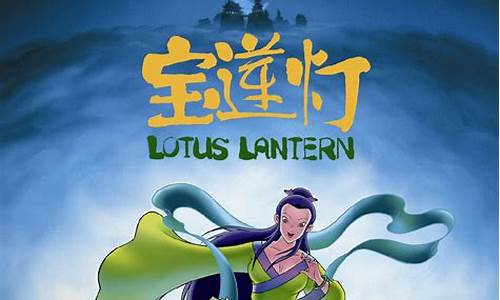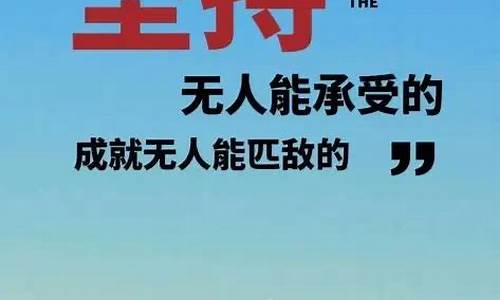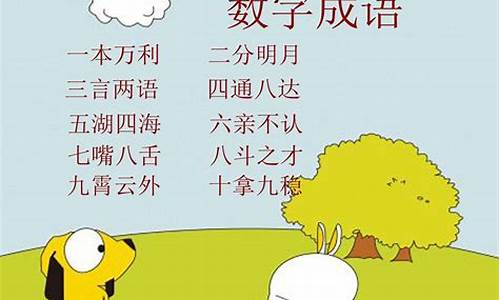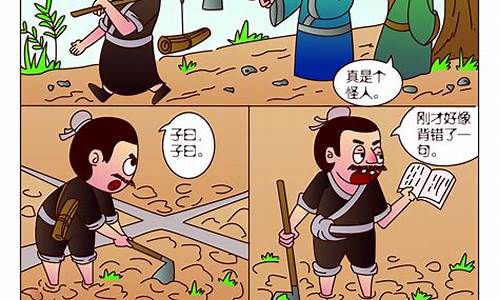您现在的位置是: 首页 > 在线成语解释 在线成语解释
成语故事四格漫画英语版_成语故事四格漫画英语版图片
ysladmin 2024-06-08 人已围观
简介成语故事四格漫画英语版_成语故事四格漫画英语版图片 非常感谢大家聚集在这里共同探讨成语故事四格漫画英语版的话题。这个问题集合涵盖了成语故事四格漫画英语版的广泛内容,我将用我的知识和经验为大家提供全面而深入的回答
非常感谢大家聚集在这里共同探讨成语故事四格漫画英语版的话题。这个问题集合涵盖了成语故事四格漫画英语版的广泛内容,我将用我的知识和经验为大家提供全面而深入的回答。
1.成语故事大全英文版?
2.简单四字成语英文版
3.英语的成语故事
4.英语版中国成语故事带翻译,短一点
5.求成语故事的英语翻译
6.小学一年级英语成语故事
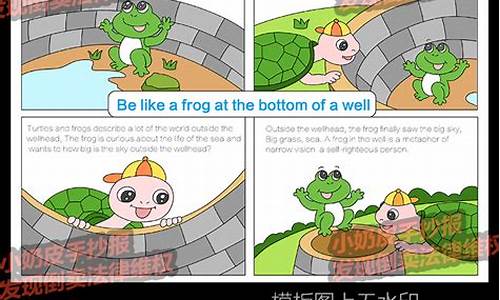
成语故事大全英文版?
成语故事既能开阔视野、增长知识,又能懂得许多做人做事的道理,更能锻炼人的语言表达能力,下面这些是我为大家推荐的几篇。
1:子罕拒玉
A farmer in the state of Song once got a piece of stone with jade in it.
宋国人有个农夫得到一块含宝玉的石头后,将它献给了相国子罕。
He presented this stone to Prime Minister Zi Han. But Zi Han refused to accept it. xiaogushi8 The farmer explained, “It looks like just a stone, but there is jade inside. It actually is a piece of treasure and suitable for honorable men like you, not for us mon people.”
子罕拒绝接受这块石头,农夫解释说:“表面上它是块石头,但里面含有宝玉,是个宝物,适合您这样的贵人使用,我们普通百姓用它就不合适了。”
“I know there is jade inside,” Zi Han said,” but I disagree with you. xiaogushi8 I think to have the virtue of declining things that do not belong to oneself is the real treasure. ”
子罕说:“我知道里面是宝玉。但我的观点和你不同,我认为具有不接受不应得的东西的品德才是真正的宝玉。”
2:讳疾忌医
A famous doctor, Bian Que, after seeing Duke Huan of the state of Cai, told him that his illness had intruded into his skin and he needed to be treated immediately.
名医扁鹊见到蔡桓公后,告诉桓公他的疾病已入侵面板,要赶快治疗。
But the Duke felt he was in good health and thought that Bian Que just wanted to take credit, so he ignored him.
桓公觉得自己的身体很好,认为扁鹊是想邀功,就没有理睬。
Ten days later, Bian Que advised the Duke to take treatments when the illness was only ion the flesh, but the Duke still had not said anything.
十天后,扁鹊劝说桓公趁病入侵肌体,英语小故事尽快诊治,桓公还是不吱声。
Another then days had passed before Bian Que told the Duke that his illness had moved to his intestines and stomach. xiaogushi8 But the king still did not believe hi, Another ten days later, when Bian Que saw the Duke, he said nothing and turned around and left.
又过了十天,扁鹊说桓公病人肠胃,桓公还是不信。再过十天,扁鹊见到桓公,一句话没说,转身便离开了。
Duke Huan sent people to ask for the reason, and Bian Que answered that when the illness was in skin, flesh, intestines and stomach, it could be cured through sticking medicines, fumigating and washing, acupuncture, or taking medicines that can eliminate internal heat, etc. Now the illness was in the bones, it could not be cured any more.
桓公派人去问他,扁鹊说,病在面板、肌体、肠胃可以通过敷药、薰药、针灸、服用清火药剂等手段治疗,现已病已骨髓,治不好了。
Five days later, Duke Huan ached all over the body. But at this time, xiaogushi8 Bian Que had already fled to the state of Qin. Before long, the Duke died of his incurable illness.
五天以后,桓公浑身疼痛,而扁鹊已逃往秦国。不久,桓公因伤病发作,治疗无效而死去。
3:自胜为强
Zeng Zi saw Zi Xia and asked him, “Why have you gained weight?”
曾子见到子夏,问道:“你怎么胖了?”
Zi Xia said, “I had a victory, that is why I have gained weight.”
子夏说:“我获得了胜利,所以胖了。”
“What victory do you refer to?” Zi Xia said, “When I immerged myself in reading books, xiaogushi8 I revered the principles of the emperors and sages of the past. When I went out, I admired the life of nabodi *** . There was a fight between the two in my mind, and they came out even. So I got emaciated. Now that the principles of the emperors and sages of the past have won victory, my mind has bee more and more peaceful. So I have gained weight.”
曾子问:“你是指什么?”子夏说:“我埋头读书时,敬仰先生至圣的道理,出门在外则羡慕富贵生活的快乐,英语短文两者在心中交战,难分胜负,所以瘦了下来。现在,先王至圣的道理获胜了,心中也日益安宁,所以人也胖了起来。”
的人还:
1.英文成语故事带翻译
2.成语故事英文版
3.成语故事英文精选
4.成语故事英文
5.成语故事中英文
简单四字成语英文版
英语故事:破镜重圆
A Broken Mirror Joined Together
This set phrase metaphorically means the reunion of husband and wife after an enforced separation or a rupture.
At the end of Southern Dynasties,when the Chen Dynasty was about to be overthrown.
Xú Déyán felt very worried.He foreknew that his wife Princess Lè Chāng was destined to separate from him.
His wife is the last Emperor Chén Shūbǎo's younger sister.
Hence he broke a round bronze mirror into halves.
One half is given to the Princess,the other half left with himself.
The couple agreed on it that the wife would pretend to sell the broked mirror in the street of Cháng'ān,the capital of the Suí Dynasty,on the Lantern Festival.
After the fall of Chén Dynasty,Princess Lè Chāng was captured and sent to Chang'an and forced to be a concubine-servant in the mansion of Yáng Sù.
Xú Déyán missed his wife very much and went to the captial to look for her.
On the 15th day of the first lunar month,he found a man selling half the mirror.
After asking the man,he knew that his wife had been a concubine-servant of Yáng Sù. Thinking that he could not see her again,he sighed a great sorrow.
Having known the matter,Yáng Sù felt much sympathy for the couple.He sent for Xú Déyán and told him to take wife away.Thus the husband and the wife were reunited into a happy couple.
英语的成语故事
1. 简洁的成语故事(英文版)
郑人买履(A man from the State of Zheng bought shoes)Once upon a time , a man in the State of Zheng went to the market to buy a pair of shoes. Before he left for the market, he had measured his feet with a piece me straw. However , he couldn't find the measurement because he had left it at home . So he had to say sorry to the owner that he had to go home for it, which confused the owner why he didn't try the shoes on with his own feet . The man *** iled to the owner , " I would rather believe in the measuremens than my own feet."。
2. 英语的四字成语keep somebody at arm's length, 形影不离
be on one's back, 卧病在床
make somebody's blood boil, 热血沸腾
Keep one's shirt on, 忍辱负重
Shout something from the rooftops , 登高而呼
Be all ears, 洗耳恭听
out of the blue, 猝不及防
at sixes and sevens, 乱七八糟
A bolt from the blue 晴天霹雳
love you love your dog 爱屋及乌
a bad apple, 金玉其外,败絮其中
It rains dogs and cats.倾盆大雨
Fish in trouble water.混水摸鱼
Teach fish to swim.班门弄斧
Beat the dog before the lion.杀鸡敬猴
3. 英语的四字词语繁荣昌盛thriving and prosperous爱不释手fondle admiringly爱财如命skin a flea for its hide爱屋及乌love me, love my dog. He that loves the tree loves the branch恨屋及乌:He who hates Peter har his dog.)安居乐业live and work in peace and contentment白手起家build up from nothing / build up from scratch /start from scratch百里挑一one in a hundred / the cream of the crop百折不挠be indomitable半途而废give up halfway leave sth. Unfinished包罗万象all-embracing all-inclusive饱经风霜weather-beaten卑躬屈膝bow and scrape cringe悲欢离合vicissitudes of life背道而驰run counter to run in the opposite direction本末倒置put the cart before the horse笨鸟先飞the slow need to start early必由之路the only way闭关自守close the country to international intercourse变本加厉be further intensified变化无常chop and change fantasticality 变化无常chop and change fantasticality别开生面having sth. New别有用心have ulterior motives彬彬有礼refined and courteous urbane兵不厌诈in war nothing is too deceitful博古通今erudite and informed不败之地incincible position不耻下问feel not ashamed to learn from one's subordinates不可救药be past praying for beyond redemption不劳而获reap where one has not sown不屈不挠fortitude indefatigability perseverance persevere tenacity不速之客crasher uninvited guest不同凡响outstanding不言而喻speak for itself tell its own story tell its own tale went without saying不遗余力spare no effort spare no pains不以为然not approve object to不义之财filthy lucre filthy pelf the mammon of unrighteousness不亦乐乎extremely不远千里go to the trouble of travelling a long distance不约而同happen to coincide不择手段by any kind of means by hook or crook play hard by fair means or foul不知所措be at a loss be all adrift lose one's head out of one's wits才疏学浅have little talent and learning惨绝人寰extremely cruel沧海桑田time brings a great change to the worlds沧海一粟/九牛一毛a drop in the bucket草木皆兵a state of extreme nervousness层出不穷emerge in endlessly。
4. 英语的四字成语优质解答keep somebody at arm's length,形影不离 be on one's back,卧病在床 make somebody's blood boil,热血沸腾 Keep one's shirt on,忍辱负重 Shout something from the rooftops ,登高而呼 Be all ears,洗耳恭听 out of the blue,猝不及防 at sixes and sevens,乱七八糟 A bolt from the blue 晴天霹雳love you love your dog 爱屋及乌 a bad apple,金玉其外,败絮其中It rains dogs and cats.倾盆大雨 Fish in trouble water.混水摸鱼 Teach fish to swim.班门弄斧 Beat the dog before the lion.杀鸡敬猴。
英语版中国成语故事带翻译,短一点
画蛇添足
An official of the ancient State of Chu awarded a pot of wine to his men after the ceremony of Spring Sacrifice. One man said, “We have only one pot of wine. It's not enough for all of us but sufficient for one. Let's determine who'll have the wine by drawing a snake on the ground. He who finishes first will have the wine.”
The others agreed. Very soon, one man finished his snake. He was about to drink the wine when he saw the others were still busy drawing. He said complacently,“How slowly you are! I still have enough time to add feet to my snke.” But before he finished the feet, another man finished his snke and grabbed the pot from him, saying,“Whoever has seen a snake with feet? Yours is not a snke. So the wine should be mine!” He drank the wine. The man adding the feet to the snake had to give in and could only regret his foolishness.
楚国有一个官员,在春天祭过了祖宗之后,便将一壶酒赏给他的办事人员喝。有人提议:“我们只有一壶酒,肯定不够我们大家喝的,一个人喝倒是绰绰有余。我们每人在地上画一条蛇,谁画得最快,就把这壶酒给他。” 大家都同意了。
有一个人很快就把蛇画好了。他正打算喝这壶酒时,看见别人都还忙着画呢。他就得意扬扬地说:“你们画得好慢呀,等我再画上几只脚吧!” 他的蛇脚还没画完,另一个人已经把蛇画好了。那人把酒壶夺了过去说:“有谁见过长脚的蛇?你画的不是蛇,这壶酒应该是我的了。”说罢,就喝起酒来。那个给蛇画脚的人没办法,只能懊悔自己的愚蠢。
一鸣惊人
In the Warring States Period, Duke Wei of Qi neglected state affairs, for the first three years of his reign, giving himself over to dissipation. One of his ministers, Chun Yukun who had a good sense of humour, said to him: 'There is a big bird which has neither taken wing nor sung for three years.' The duke answered, 'Once that bird starts to fly and sing, it will astonish the world.' The duke thereupon devoted himself to his duties and built his state up into a powerful one.
战国时代,齐威王即位后做了三年国君,只顾享乐,不理政事。有个善于说笑话的人叫淳于髡,一天对齐威王说:“城里有一只大鸟,三年不飞也不叫,你知道这是什么道理?”齐威王说:“这鸟不飞则罢,一飞就冲天;不鸣则罢,一鸣就惊人。”在淳于髡的激发下,齐威王开始治理国家,取得很大成绩,齐国的声威一直保持了几十年。
杞人忧天
In the Spring and Autumn Period, in the State of Qi there was a man who always let his imagination run away with him. One day he even worried that the sky would fall on his head. He was so worried that he could neither eat nor sleep. Later, someone persuaded him that his fears were Ground-less.
春秋时代,杞国有一个喜欢胡思乱想的人。一天,他竟然想到,天会塌下来,地会陷下去,自己到哪里去安身?这个人越想越害怕,整天愁眉苦脸,坐立不安,白天吃不下饭,晚上睡不着觉。后来有人耐心地开到他,他才放下了心。
精卫填海
Once upon a time, the youngest daughter of Emperor Yan, legendary ruler of primitive China, went boating on the Eastern Sea. While she was enjoying herself, a strong wind rose on the sea and her boat capsized. Just before she was buried by the surging waves, her spirit turned into a beautiful bird. As it flew over the roaring sea, it cried sadly in the sound "jinwei, jingwei". That was why people called it "Jingwei".
The bird lived on a mountain near the sea. It hated the sea so much that it decided to fill it up. Every day, it flew to and fro between the mountain and the sea, carrying in a twig or a pebble from the mountain and dropping it into the sea.
One day, the roaring sea said to Jingwei, "Poor little bird, stop doing that meaningless thing! You'll never fill me up." Jingwei replied, "I'll fill you up no doubt! I will, even if it'll take me thousands of years! I'll fight on until doomsday!"
The brave little bird kept carrying twigs and pebbles from the mountain to the Eastern Sea without taking a rest.
From this fable comes the idiom "The bird Jingwei trying to fill the sea". We use it to describe people who are firm and indomitable and will not stop until they reach their goal.
从前,炎帝(传说中中国原始社会的统治者)的小女儿在东海上划船。正当她划得高兴时,海面上突然升起一阵大风,把她的小船弄翻了。就在她要被汹涌的波浪吞 没时,她的灵魂变成了一只美丽的小鸟。它飞过那咆哮的海面,伤心的叫着"精卫,精卫"的声音。所以人们就叫她"精卫"。
精卫鸟住在靠海的一座山上。它非常恨大海,所以决心要把它填平。它每天来回于山海之间,把从山上衔来的小树枝和小石子扔在大海里。
一天,咆哮的大海对精卫说:"可怜的小鸟,停止你那无谓的举动吧!你是永远都填不平我的。" 精卫回答说:"我当然会把你填平的!即使这需要千千万万年的时间,我也一定会斗争到底,直到你的末日来临!"
这只勇敢的小鸟继续从山上衔来小树枝和小石子,扔到东海中,从未有片刻休息。
"精卫填海"这个成语就是由这个传说而来的,形容那些坚定不移,不屈不挠,不到目的决不罢休的人。
求成语故事的英语翻译
塞翁失马Blessing or Bane
战国时期,靠近北部边城,住着一个老人,名叫塞翁。塞翁养了许多马,一天,他的马群中忽然有一匹走失了。邻居们听说这件事,跑来安慰,劝他不必太着急,年龄大了,多注意身体。塞翁见有人劝慰,笑了笑说:“丢了一匹马损失不大,没准会带来什么福气呢。”
邻居听了塞翁的话,心里觉得很好笑。马丢了,明明是件坏事,他却认为也许是好事,显然是自我安慰而已。过了几天,丢失的马不仅自动返回家,还带回一匹匈奴的骏马。 邻居听说了,对塞翁的预见非常佩服,向塞翁道贺说:“还是您有远见,马不仅没有丢,还带回一匹好马,真是福气呀。” 塞翁听了邻人的祝贺,反而一点高兴的样子都没有,忧虑地说:“白白得了一匹好马,不一定是什么福气,也许惹出什么麻烦来。” 邻居们以为他故作姿态纯属老年人的狡猾。心里明明高兴,有意不说出来。 塞翁有个独生子,非常喜欢骑马。他发现带回来的那匹马顾盼生姿,身长蹄大,嘶鸣嘹亮,膘悍神骏,一看就知道是匹好马。他每天都骑马出游,心中洋洋得意。 一天,他高兴得有些过火,打马飞奔,一个趔趄,从马背上跌下来,摔断了腿。邻居听说,纷纷来慰问。 塞翁说:“没什么,腿摔断了却保住性命,或许是福气呢。”邻居们觉得他又在胡言乱语。他们想不出,摔断腿会带来什么福气。 不久,匈奴兵大举入侵,青年人被应征入伍,塞翁的儿子因为摔断了腿,不能去当兵。入伍的青年都战死了,唯有塞翁的儿子保全了性命。Near China's northern borders lived a man well versed in the practices of Taoism. His horse, for no reason at all, got into the territory of the northern tribes. Everyone commiserated with him.
"Perhaps this will soon turn out to be a blessing," said his father.
After a few months, his animal came back, leading a fine horse from the north. Everyone congratulated him.
"Perhaps this will soon turn out to be a cause of misfortune," said his father.
Since he was well-off and kept good horses his son became fond of riding and eventually broke his thigh bone falling from a horse. Everyone commiserated with him.
"Perhaps this will soon turn out to be a blessing," said his father.
One year later, the northern tribes started a big invasion of the border regions. All able-bodied young men took up arms and fought against the invaders, and as a result, around the border nine out of ten men died. This man's son did not join in the fighting because he was crippled and so both the boy and his father survived.
小学一年级英语成语故事
英语成语故事-井底之蛙
The Frog in the Shallow Well (Jing Di Zhi Wa)
Have you not heard of the frog that lived in a shallow well? It said to a turtle that lived in the East Sea, "I am so happy! When I go out, I jump about on the railing beside the mouth of the well. When I come home, I rest in the holes on the broken wall of the well. If I jump into the water, it comes up to my armpits and holds up my cheeks. If I walk in the mud, it covers up my feet. I look around at the wriggly worms, crabs and tadpoles, and none of them can compare with me. Moreover, I am lord of this trough of water and I stand up tall in this shallow well. My happiness is full. My dear sir, why don't you come often and look around my place?"
Before the turtle from the East Sea could get its left foot in the well, its right knee got stuck. It hesitated and retreated. The turtle told the frog about the East Sea.
"Even a distance of a thousand li cannot give you an idea of the sea's width; even a height of a thousand ren cannot give you an idea of its depth. In the time of King Yu of the Xia dynasty, there were floods nine years out of ten, but the waters in the sea did not increase. ln the time of King Tang of the Shang dynasty there were droughts seven years out of eight, but the waters in the sea did not decrease. The sea does not change along with the passage of time and its level does not rise or fall according to the amount of rain that falls. The greatest happiness is to live in the East Sea."
After listening to these words, the frog of the shallow well was shocked into realization of his own insignificance and became very ill at ease.
=============================
英语故事:惊弓之鸟
A Bird Startled by the Mere Twang of a Bow-String
This set phrase figuratively denotes those who have suffered disasters and so have a lingering fear when anything happen.
During the War Period ,in the Wèi State there lived a famous archer named Gēng léi.
One day,Gēng léi and the King of Wei standing on a high terrace saw some birds flying past.
At this Gēng léi said to the King:"I'll shoot a flying bird down for YourMajesty by drawing a bow with no arrow."
The King asked,"Is it possible that one's archery can attain such a level?"
A little later,a wild goose was flying from the east.
Gēng léi just drew his bow but didn't shoot an arrow.
As expected,the wild goose fell to the ground with the twang.
The King asked in surprise,"How can your archery reach such a high level?"
Gēng léi replied ,"This wild goose has been wounded."
The King got more surprised,asking,"How do you know it,sir?"
Gēng léi esplained,"This wild goose flew slowly and cried sadly.Its flying slowly suggested that it was still aching with the old wound; its crying sadly suggested that it had strayed long from its flock.When it heard the twang the wild goose had to flutter hard to fly high for its life.So it is evitably fell down with its old wound burst."
=============================
刻舟求剑
Making His Mark (Ke Zhou Qiu Jian)
A man from the state of Chu was crossing a river. In the boat, his sword fell into the water. Immediately he made a mark on the boat.
"This is where my sword fell off," he said.
When the boat stopped moving, he went into the water to look for his sword at the place where he had marked the boat.
The boat had moved but the sword had not. Is this not a very foolish way to look for a sword
急求一个英语的成语故事!!!
⑴ 小学1--6年级所有的成语故事开卷有益 · 博而不精 · 百发百中 · 捕风捉影
· 必恭必敬 · 百感交集 · 兵贵神速 · 杯弓蛇影
· 不寒而栗 · 不合时宜 · 不自量力 · 不拘一格
· 不可多得 · 不堪回首 · 不可救药 · 别开生面
· 不可同日而语 · 不伦不类 · 伯乐相马 · 班门弄斧
· 白面书生 · 八面威风 · 不名一钱 · 拔苗助长
· 不屈不挠 · 不求甚解 · 髀肉复生 · 病入膏肓
· 不入虎穴,不得虎子 · 拔山举鼎 · 博士买驴 · 冰山难靠
· 背水一战 · 半途而废 · 不贪为宝 · 白头如新
· 百闻不如一见 · 不为五斗米折腰 · 抱薪救火 · 标新立异
· 不学无术 · 不入虎穴,不得虎子 · 不远千里 · 不因人热
· 别有天地 · 不遗余力 · 百折不挠 · 百丈竿头
· 不自量力 · 不知所云 · 宾至如归 · 拔帜易帜
· 残杯冷炙 · 寸草春晖 · 草船借箭 · 乘风破浪
· 才高八斗 · 城狐社鼠 · 沧海桑田 · 草菅人命
· 草木皆兵 · 程门立雪 · 长驱直入 · 车水马龙
· 乘兴而来 · 沉鱼落雁 · 乘人之危 · 车载斗量
· 大笔如椽 · 打草惊蛇 · 雕虫小技 · 大材小用
· 多多益善 · 大腹便便 · 大公无私 · 当局者迷
· 大逆不道 · 大器晚成 · 当务之急 · 开诚布公
· 不得要领 · 抛砖引玉 · 二桃杀三士 · 尔虞我诈
· 罚不当罪 · 奋不顾身 · 分崩离析 · 风吹草动
· 覆巢无完卵 · 分道扬镳 · 奉公守法 · 负荆请罪
· 发奸擿伏 · 返老还童 · 发蒙振落 · 风声鹤唳
· 覆水难收 · 赴汤蹈火 · 分庭抗礼 · 防微杜渐
· 负隅顽抗 · 负重致远 · 管鲍之交 · 各得其所
· 感恩图报 · 过河拆桥 · 刮目相看 · 瓜田李下
· 高枕无忧 · 各自为政 · 华而不实 · 好好先生
· 狐假虎威 · 汗流浃背 · 后来居上 · 合浦珠还
· 后起之秀 · 后生可畏 · 火树银花 · 坚壁清野
· 间不容发 · 井底之蛙 · 鸡口牛后 · 江郎才尽
· 见猎心喜 · 鸡鸣狗盗 · 九牛一毛 · 胶漆相投
· 举一反三 · 开诚布公 · 空洞无物 · 沆瀣—气
· 克己奉公 · 开卷有益 · 侃侃而谈 · 口蜜腹剑
· 开门揖盗 · 空前绝后 · 克勤克俭 · 旷日持久
· 困兽犹斗 · 开天辟地 · 口若悬河 · 空中楼阁
· 刻舟求剑 · 脍炙人口 · 狼狈不堪 · 力不从心
· 两败俱伤 · 乐不思蜀 · 老当益壮 · 劳而无功
· 论功行赏 · 老马识途 · 老牛舐犊 · 老妪能解
· 老生常谈 · 梁上君子 · 蓝田生玉 · 滥竽充数
· 狼子野心 · 芒刺在背 · 买椟还珠 · 马革裹尸
· 门可罗雀 · 名落孙山 · 孟母三迁 · 马首是瞻
· 毛遂自荐 · 门庭若市 · 木人石心 · 牛鼎烹鸡
· 怒发冲冠 · 鸟尽弓藏 · 南柯一梦 · 弄巧成拙
· 穷兵黩武 · 宁为玉碎,不为瓦全 · 难兄难弟 · 南辕北辙
· 天真料漫 · 千变万化 · 七步之才 · 庆父不死鲁难未已
· 曲高和寡 · 曲尽其妙 · 千金市骨 · 千钧一发
· 千里鹅毛 · 黔驴技穷 · 千虑一得 · 巧取豪夺
· 七擒七纵 · 杞人忧天 · 曲突徙薪 · 千万买邻
· 犬牙交错 · 千人所指 · 千载难逢 · 气壮山河
· 日不暇给 · 人非圣贤,孰能无过 · 人给家足 · 如火如荼
· 人杰地灵 · 日暮途穷 · 入木三分 · 人琴俱亡
· 人弃我取 · 忍辱负重 · 任人为贤 · 人人自危
· 如释重负 · 入吾彀中 · 人心如面 · 如鱼得水
· 人言可畏 · 孺子可教 · 手不释卷 · 士别三日
· 死不旋踵 · 师出无名 · 三寸之舌 · 水滴石穿
· 死而不朽 · 伤风败俗 · 三顾茅庐 · 双管齐下
· 死灰复燃 · 十行俱下 · 四海之内皆兄弟 · 尸居余气
· 司空见惯 · 水落石出 · 三令五申 · 四面楚歌
· 三迁之教 · 三人成虎 · 杀身成仁 · 水深火热
· 识时务者为俊杰 · 三生有幸 · 尸位素餐 · 塞翁失马
· 上下其手 · 上行下效 · 随月读书 · 守株待兔
· 三折其肱 · 土崩瓦解 · 同仇敌忾 · 同仇敌忾
· 太公钓鱼愿者上钩 · 同甘共苦 · 同工异曲 · 天经地义
· 天下无双 · 天涯海角 · 天衣无缝 · 一夔已足
· 穷兵黩武 · 庄周梦蝶 · 曾参 · 以强凌弱
· 完壁归赵 · 韦编三绝 · 无出其右 · 为虎作伥
· 刎颈之交 · 无可奈何 · 望梅止渴 · 五日京兆
· 危如累卵 · 万死不辞 · 万事俱备只欠东风 · 五色无主
· 亡羊补牢 · 未雨绸缪 · 妄自尊大 · 下笔成章
· 下车泣罪 · 先发制人 · 兴高采烈 · 心旷神怡
· 朽木不雕 · 休戚相关 · 先声夺人 · 小巫见大巫
· 小时了了 · 小心翼翼 · 一败涂地 · 有备无患
· 一不做、二不休 · 一傅众咻 · 一傅众咻 · 以强凌弱
· 饮醇自醉 · 一代楷模 · 一发千钧 · 约法三章
· 以古非今 · 叶公好龙 · 以管窥天 · 言过其实
· 一国三公 · 以规为滇 · 愚公移山 · 一鼓作气
· 一挥而就 · 与虎谋皮 · 异军突起 · 有脚阳春
· 以卵击石 · 以邻为壑 · 夜郎自大 · 一毛不拔
· 一鸣惊人 · 一木难支 · 以貌取人 · 羽毛未丰
· 有名无实 · 一诺千金 · 一暴十寒 · 一窍不通
· 一钱不值 · 予取予求 · 一丘之貉 · 一日千里
· 一日三秋 · 一丝不拘 · 一身是胆 · 以身试法
· 一事无成 · 一网打尽 · 义无反顾 · 一问三不知
· 一误再误 · 月下老人 · 忧心如焚 · 一衣带水
· 一意孤行 · 一叶障目 · 有志竟成 · 一字千金
· 有恃无恐 · 饮鸩止渴 · 自惭形秽 · 专横跋扈
守株待兔:守是 守候、等候 的意思 , “株”是指 露在地面上的树木的根和茎。这个成语的意思是: 守候在树旁,等着捡撞死的兔子。比喻不主动地努力,存着侥幸的心理,希望得到意外的收获。
邯郸学步:故事出自《庄子·秋水》。成语“邯郸学步”,比喻生搬硬套,机械地模仿别人,不但学不到别人的长处,反而会把自己的优点和本领也丢掉。
· 邯郸学步:比喻生搬硬套,机械地模仿别人,不但学不到别人的长处,反而会把自己的优点和本领也丢掉。
· 狐假虎威:狐狸假借老虎的威势。比喻依仗别人的势力欺压人。
· 百发百中: 形容射箭或打枪准确,每次都命中目标。也比喻做事有充分把握。
· 捕风捉影:风和影子都是抓不着的。比喻说话做事丝毫没有事实根据。
· 杞人忧天:杞国有个人怕天塌下来。比喻不必要的或缺乏根据的忧虑和担心。
· 井底之蛙:井底的蛙只能看到井口那么大的一块天。比喻见识狭窄的人。
· 望梅止渴:原意是梅子酸,人想吃梅子就会流涎,因而止渴。后比喻愿望无法实现,用空想安慰自己。
· 杯弓蛇影:将映在酒杯里的弓影误认为蛇。比喻因疑神疑鬼而引起恐惧。
· 郑人买履:用来讽刺只信教条,不顾实际的人。
· 不合时宜:不适合时代形势的需要。也指不合世俗习尚。
· 守株待兔:原比喻希图不经过努力而得到成功的侥幸心理。现也比喻死守狭隘经验,不知变通。
· 愚公移山:比喻坚持不懈地改造自然和坚定不移地进行斗争。
· 曲突徙薪:把烟囱改建成弯的,把灶旁的柴草搬走。比喻事先采取措施,才能防止灾祸。
· 抛砖引玉:抛出砖去,引回玉来。比喻用自己不成熟的意见或作品引出别人更好的意见或好作品。
· 自相矛盾:比喻自己说话做事前后抵触。
· 滥竽充数:比喻无本领的冒充有本领,次货冒充好货。
· 刻舟求剑:比喻不懂事物已发展变化而仍静止地看问题。
· 叶公好龙:比喻口头上说爱好某事物,实际上并不真爱好。
· 亡羊补牢:羊逃跑了再去修补羊圈,还不算晚。比喻出了问题以后想办法补救,可以防止继续受损失。
· 画蛇添足:画蛇时给蛇添上脚。比喻做了多余的事,非但无益,反而不合适。
· 掩耳盗铃:偷铃铛怕别人听见而捂住自己的耳朵。比喻自己欺骗己,明明掩盖不住的事情偏要想法子掩盖。
· 买椟还珠:买下木匣,退还了珍珠。比喻没有眼力,取舍不当
⑵ 适合一年级学生参赛的成语故事有哪些
这些成语故事很多,比如说一些寓言故事还有历史故事。这些都可以的选择一个喜欢的就行。
⑶ 小学一年级英汉双译成语故事:滴水穿石
滴水穿石
水不断下滴,可以闹穿石头。 比喻只要有恒心,不断努力,事情一定成功。专
[拼音]
dī shuǐ chuān shí
[出处属]
宋·罗大经《鹤林玉露·一钱斩吏》:“乖崖援笔判曰:‘一日一钱;千日千钱;绳锯木断;水滴石穿。’”
[例句]
同学们在日常学习中,应该有滴水穿石的精神。
[近义]
水滴石穿 锲而不舍 绳锯木断 孜孜不倦 ...
[反义]
半途而废 浅尝辄止
⑷ 小学一年级英汉双译成语故事:笨鸟先飞
成语来源
The early bird catches the worm
笨鸟先飞
A bird hatches six baby birds.The Sixth is very weak and *** all; his sisters and brothers usually bully him.The other birds usually rob food from his mouth, and the Sixth has to suffer from hunger.
树上一只鸟妈妈孵出了六只鸟宝宝,小六回又瘦又小,哥哥姐姐答们都欺负它;经常从它嘴里抢虫子,小六只得饿着肚子。
Sisters and Brothers call him “clumsy bird.”
哥哥姐姐们都叫他“小笨鸟”。
He determines to exercise more to be healthier, in order to not be laughed by his sisters and brothers.
⑸ 一年级成语故事有哪些
一、坐井观天
在一口废井里,住着一只青蛙。一天,青蛙在井边碰见一只从东海来的海龟。 青蛙自豪地对海鬼夸口说:“你看,我住在这里多么惬意呀!我要高兴,就在井边跳跃游玩,累了就到井壁石洞里休息。
有时把身子舒服地泡在水里,有时愉快地在稀泥中散散步。你看旁边的那些小虫、螃蟹和蝌蚪,它们谁能比得上我呢!我独自占据这口废井,多么自由自在!
先生为什么不经常到井中观赏游玩呢?” 海鬼听了青蛙的一番高谈阔论,就想进入井中看看。可是,它的左脚还没有完全伸进去,右脚就被井栏绊住了。
它只好后退几步,把它看到的大海的情景告诉青蛙:“你见过大海吗?海的广大,岂止千里;海的深度,何止千丈。
古时候,十年里就有九年闹水灾,海水并不因此增多;八年里就有七年闹旱灾,海水却不因此而减少。大海不受旱涝影响,住在广阔无垠的大海里才是真正的快乐。
二、掩耳盗铃
春秋末期,晋国有个叫范吉射的人,家门口挂了一口大钟。在我国古代,钟和铃都是乐器。 一天,有个人到范吉射家里,见到门口的钟,想偷偷地把它背走。但是,钟太笨重了,他根本无法把它背走。后来,终于想出了一个办法:把钟敲碎了,分批拿回去。
于是,他找了一个铁锤,用力去敲钟。“当——”第一下敲上去,钟就发出洪亮悠长的响声;再敲下去,钟发出同样的响声。他想:“钟声一响,人家就知道我在这里敲钟。
这样,钟就要被别人夺走,我也要被人抓住。”于是,他捂住自己的耳朵,这样钟声再响也听不见了,他想既然我离得这么近也听不见,其他人当然更听不见,就可以安全地将钟偷走了。
其实他非常愚蠢可笑:虽然他捂住了耳朵听不见钟声,但别人的耳朵没有被捂住,当然还会听见钟声。 后来,人们就把这个故事概括成“掩耳盗铃”这一成语,来比喻那些自以为是、自欺欺人的人。
三、刻舟求剑
有一个楚国人出门远行。他在乘船过江的时候,一不小心,把随身带着的剑落到江中的急流里去了。船上的人都大叫:“剑掉进水里了! 这个楚国人马上用一把小刀在船舷上刻了个记号,然后回头对大家说:“这是我的剑掉下去的地方。”
众人疑惑不解地望着那个刀刻的印记。有人催促他说:“快下水去找剑呀!” 楚国人说:“慌什么,我有记号呢。”
船继续前行,又有人催他说:“再不下去找剑,这船越走越远,当心找不回来了。” 楚国人依旧自信地说:“不用急,不用急,记号刻在那儿呢。”
直至船行到岸边停下后,这个楚国人才顺着他刻有记号的地方下水去找剑。可是,他怎么能找得到呢。船上刻的那个记号是表示这个楚国人的剑落水瞬间在江水中所处的位置。
掉进江里的剑是不会随着船行走的,而船和船舷上的记号却在不停地前进。等到船行至岸边,船舷上的记号与水中剑的位置早已风马牛不相及了。这个楚国人用上述办法去找他的剑,不是太糊涂了吗?
他在岸边船下的水中,白费了好大一阵工夫,结果毫无所获,还招来了众人的讥笑。 这则故事告诉我们,用静止的眼光去看待不断发展变化的事物,必然要犯脱离实际的主观唯心主义错误。
四、守株待兔
春秋战国时期,宋国有个农夫种着几亩地,他的地头上有一棵大树。一天,他在地里干活,忽然看见一只兔子箭一般地飞奔过来,猛的撞在那棵大树上,一下子把脖子折断了,蹬蹬腿就死了。
这个农夫飞快的跑过去,把兔子捡起来,高兴地说:“这真是一点劲没费,白捡了个大便宜,回去可以美美地吃上一顿了。”
他拎着兔子一边往家走,一边得意地想:“我的运气真好,没准明天还会有兔子跑来,我可不能放过这样的便宜。”
第二天,他到地里,也不干活,只守着那棵大树,等着兔子撞过来。结果,等了一天什么也没等到。
他却不甘心,从此,天天坐在那棵大树下等着兔子来撞死。他等呀等呀,直等到地里的野草长得比庄稼都高了,连个兔子影也没有再见到。
五、亡羊补牢
从前,有个人养了一圈羊。一天早上他准备出去放羊,发现少了一只。原来羊圈破了个窟窿。夜间狼从窟窿里钻进来,把羊叼走了。
邻居劝告他说:"赶快把羊圈修一修,堵上那个窟窿吧!"他说:"羊已经丢了,还修羊圈干什么呢?"没有接受邻居的劝告。
第二天早上,他准备出去放羊,到羊圈里一看,发现又少了一只羊。原来狼又从窟窿里钻进来,把羊叼走了。
他很后悔,不该不接受邻居的劝告,就赶快堵上那个窟窿,把羊圈修补得结结实实。从此,他的羊再也没有被狼叼走的了。
说明:羊丢了,把羊圈修补起来,剩下的羊就不会再丢。犯了错误,立即改正,就能减少错误。遭到失误,及时采取补救措施,则可以避免继续出现的损失。
⑹ 小学一年级英汉双译成语故事:对佟33小学
成语: 狐假虎威
拼音: hú jiǎ hǔ wēi
解释: 假:借。狐狸假借老虎的威势。比喻依仗别人的势力欺压人。
出处: 《战国策·楚策一》:“虎求百兽而食之,得狐。……虎以为然,故遂与之行。兽见之皆走,虎不知兽畏己而走也,以为畏狐也。”
举例造句: 果然府中来借,怎好不借?只怕被别人狐假虎威的诓的去,这个却保不得他。 明·凌濛初《二刻拍案惊奇》卷二十
拼音代码: hjhw
近义词:仗势欺人、狗仗人势
反义词:独步天下、独擅胜场
歇后语: 狐狸跟着老虎走
灯谜: 风顺腋臭浓
用法: 作谓语、定语、宾语;指借机欺压别人
英文:bully people by flaunting one's powerful connections
故事: 很久以前,森林里有只老虎看到一只狐狸就想吃掉它,狐狸大叫:“我是玉帝派来的百兽之王,你如同一起走一走,看看森林里的动物是不是很害怕我。”老虎想也没想就随同前往,果然小动物见了就跑
狐假虎威
[词典] (比喻借别人的威势欺压人)the fox assuming the majesty of the tiger -- borrowing power to do evil;(like)a donkey [an ass] in a lion's hide;a fox masquerading as a tiger;assume someone else's authority as one's own;
[例句]“狐假虎威”这个成语的意思是借着别人的势力去欺压人或吓唬人。
This idiom means relying on another's power to bully or frightenothers.
⑺ 小学一年级英汉双译成语故事:守株待兔
成语故事:宋国有个农夫正在田里翻土。突然,他看见有一只野兔从旁边的草丛里慌慌张张地窜出来,一头撞在田边的树墩子上,便倒在那儿一动也不动了。农民走过去一看:兔子死了。因为它奔跑的速度太快,把脖子都撞折(shé)了。农民高兴极了,他一点力气没花,就白捡了一只又肥又大的野兔。他心想;:要是天天都能捡到野兔,日子就好过了。从此,他再也不肯出力气种地了。每天,他把锄头放在身边,就躺在树墩子跟前,等待着第二只、第三只野兔自己撞到这树墩子上来。世上哪有那么多便宜事啊。农民当然没有再捡到撞死的野兔,而他的田地却荒芜了。因为没能再次得到兔子,农民自己沦为了宋国的笑柄。
英文翻译
During the period of Warring States, many people lived on farming. One day, a farmer found that a hare bumped against a stump and died because it ran so quickly that it did not see the stump. That a hare bumped into the sump was less likely to happen again. However, the farm chose to sit near the stump, waiting for another hare, instead of farming to make a living. Eventually, the farmer starved to death.
Waiting for him
1.An Apple of Discord争斗之源;不和之因;祸根
An Apple of Discord直译为“纠纷的苹果”,出自荷马史诗Iliad中的希腊神话故事
传说希腊阿耳戈英雄(Argonaut)珀琉斯(Peleus)和爱琴海海神涅柔斯的女儿西蒂斯(Thetis)在珀利翁山举行婚礼,大摆宴席。他们邀请了奥林匹斯上(Olympus)的诸神参加喜筵,不知是有意还是无心,惟独没有邀请掌管争执的女神厄里斯(Eris)。这位女神恼羞成怒,决定在这次喜筵上制造不和。于是,她不请自来,并悄悄在筵席上放了一个金苹果,上面镌刻着“属于最美者”几个字。天后赫拉(Hera),智慧女神雅典娜(Athena)、爱与美之神阿芙罗狄蒂(Aphrodite),都自以为最美,应得金苹果,获得“最美者”称号。她们争执不下,闹到众神之父宙斯(Zeus)那里,但宙斯碍于难言之隐,不愿偏袒任何一方,就要她们去找特洛伊的王子帕里斯(Paris)评判。三位女神为了获得金苹果,都各自私许帕里斯以某种好处:赫拉许给他以广袤国土和掌握富饶财宝的权利,雅典娜许以文武全才和胜利的荣誉,阿芙罗狄蒂则许他成为世界上最美艳女子的丈夫。年青的帕里斯在富贵、荣誉和美女之间选择了后者,便把金苹果判给爱与美之神。为此,赫拉和雅典娜怀恨帕里斯,连带也憎恨整个特洛伊人。后来阿芙罗狄蒂为了履行诺言,帮助帕里斯拐走了斯巴达国王墨涅俄斯的王后---绝世美女海伦(Helen),从而引起了历时10年的特洛伊战争。不和女神厄里斯丢下的那个苹果,不仅成了天上3位女神之间不和的根源,而且也成为了人间2个民族之间战争的起因。因此,在英语中产生了an apple of discord这个成语,常用来比喻any subject of disagreement and contention;the root of the trouble;dispute等意义
这个成语最初为公元2世纪时的古罗马历史学家马克·朱里·尤斯丁(Marcus Juninus Justinus)所使用,后来广泛的流传到欧洲许多语言中去,成为了一个国际性成语。
eg: He throwing us an apple of discord,we soon quarrelled again.
The dispute about inheriting estate formed an apple of discord between them.
This problem seems to be an apple of discord between the Soviet union and the USA.
2.The Heel of Achilles 亦作The Achilles' Heel唯一弱点;薄弱环节;要害
The Heel of Achilles直译是“阿基里斯的脚踵”,是个在欧洲广泛流行的国际性成语。它源自荷马史诗Iliad中的希腊神话故事。
阿基里斯是希腊联军里最英勇善战的骁将,也是荷马史诗Iliad里的主要人物之一。传说他是希腊密耳弥多涅斯人的国王珀琉斯和海神的女儿西蒂斯所生的儿子。阿基里斯瓜瓜坠地以后,母亲想使儿子健壮永生,把他放在火里锻炼,又捏着他的脚踵倒浸在冥河(Styx)圣水里浸泡。因此阿基里斯浑身象钢筋铁骨,刀枪不入,只有脚踵部位被母亲的手捏住,没有沾到冥河圣水,成为他的唯一要害。在特洛伊战争中,阿基里斯骁勇无敌,所向披靡,杀死了特洛伊主将,著名英雄赫克托耳(Hector),而特洛伊的任何武器都无法伤害他的身躯。后来,太阳神阿波罗(Apollo)把阿基里斯的弱点告诉了特洛伊王子帕里斯,阿基里斯终于被帕里斯诱到城门口,用暗箭射中他的脚踵,负伤而死。
因此,the heel of Achilles,也称the Achilles' heel,常用以表示a weak point in something that is otherwise without fault;the weakest spot等意思。
eg:The shortage of fortitude is his heel of Achilles.
His Achilles' heel was his pride--he would get very angry if anyone criticized his work.
3.Helen of Troy
Helen of Troy 直译"特洛伊的海伦",源自源自荷马史诗Iliad中的希腊神话故事。
Helen是希腊的绝世佳人,美艳无比,嫁给希腊南部邦城斯巴达国王墨涅俄斯(Menelaus)为妻。后来,特洛伊王子帕里斯奉命出事希腊,在斯巴达国王那里做客,他在爱与美之神阿芙罗狄蒂的帮助下,趁着墨涅俄斯外出之际,诱走海伦,还带走了很多财宝
此事激起了希腊各部族的公愤,墨涅俄斯发誓说,宁死也要夺回海轮,报仇雪恨。为此,在希腊各城邦英雄的赞助下,调集十万大军和1180条战船,组成了希腊联军,公推墨涅俄斯的哥哥阿枷门农(Agamemnon)为联军统帅,浩浩荡荡,跨海东征,攻打特洛伊城,企图用武力夺回海轮。双方大战10年,死伤无数,许多英雄战死在沙场。甚至连奥林匹斯山的众神也分成2个阵营,有些支持希腊人,有些帮助特洛伊人,,彼此展开了一场持久的恶斗。最后希腊联军采用足智多谋的奥德修斯(Odusseus)的“木马计”,里应外合才攻陷了特洛伊。希腊人进城后,大肆杀戮,帕里斯王子也被杀死,特洛伊的妇女、儿童全部沦为奴隶。特洛伊城被掠夺一空,烧成了一片灰烬。战争结实后,希腊将士带着大量战利品回到希腊,墨涅俄斯抢回了美貌的海轮重返故土。这就是特洛伊战争的起因和结局。正是由于海轮,使特洛伊遭到毁灭的悲剧,真所谓“倾国倾城”,由此产生了Helen of Troy这个成语。
特洛伊战争的真实性,已为19世纪德国考古学家谢里曼在迈锡尼发掘和考证古代特洛伊古城废墟所证实。至于特洛伊城被毁的真正原因,虽然众说纷纭,但肯定决不是为了一个美女而爆发这场战争的,与其说是为了争夺海轮而打了起来,毋宁说是为了争夺该地区的商业霸权和抢劫财宝而引起战争的。所谓“特洛伊的海伦”,实质上是财富和商业霸权的化身。中国历史上也有过“妲己亡商”,“西施沼吴”等传说,以及唐明皇因宠杨贵妃而招致“安史之乱”,吴三桂“冲冠一怒为红颜”等说法。汉语中有个“倾国倾城”的成语(语出《汉书·外戚传》:‘一顾倾人城,再顾倾人国’。)这里的“倾”字一语双光,既可指美艳非凡,令人倾倒;也可纸倾覆邦国。其含义与Helen of troy十分近似。
在现代英语中,Helen of Troy这个成语,除了表示a beautiful girl or woman;a beauty who ruins her country等意义外,还可以用来表示a terrible disaster brought by sb or sth you like best的意思。
eg:It is unfair that historians always attribute the fall of kingdoms to Helen of Troy.
She didn't think of the beautiful umbrella bought the day before should become a Helen of Troy in her family.Because of this she and her husband quarreled for a long time.
好了,今天关于“成语故事四格漫画英语版”的话题就讲到这里了。希望大家能够通过我的介绍对“成语故事四格漫画英语版”有更全面的认识,并且能够在今后的实践中更好地运用所学知识。如果您有任何问题或需要进一步的信息,请随时告诉我。
